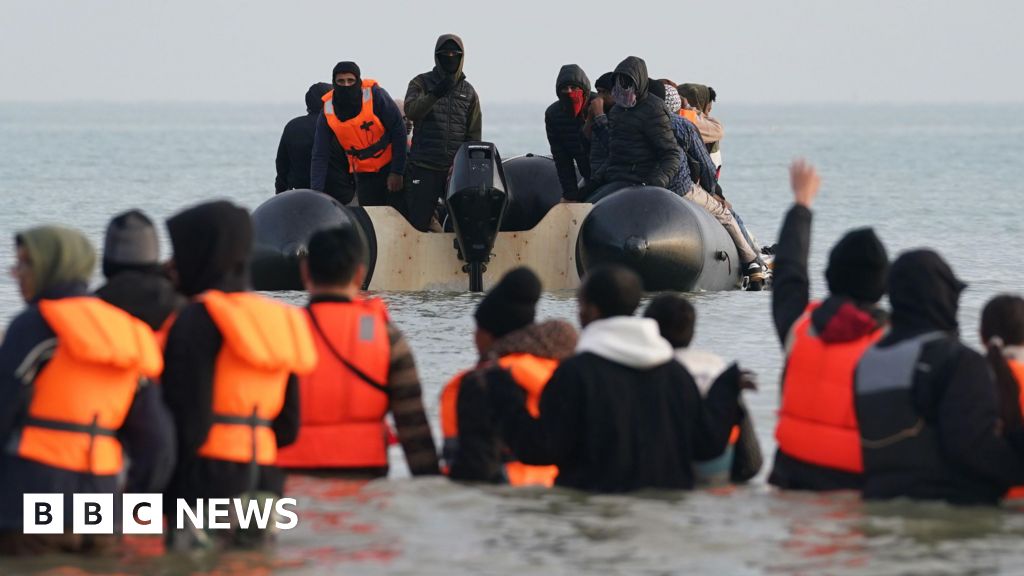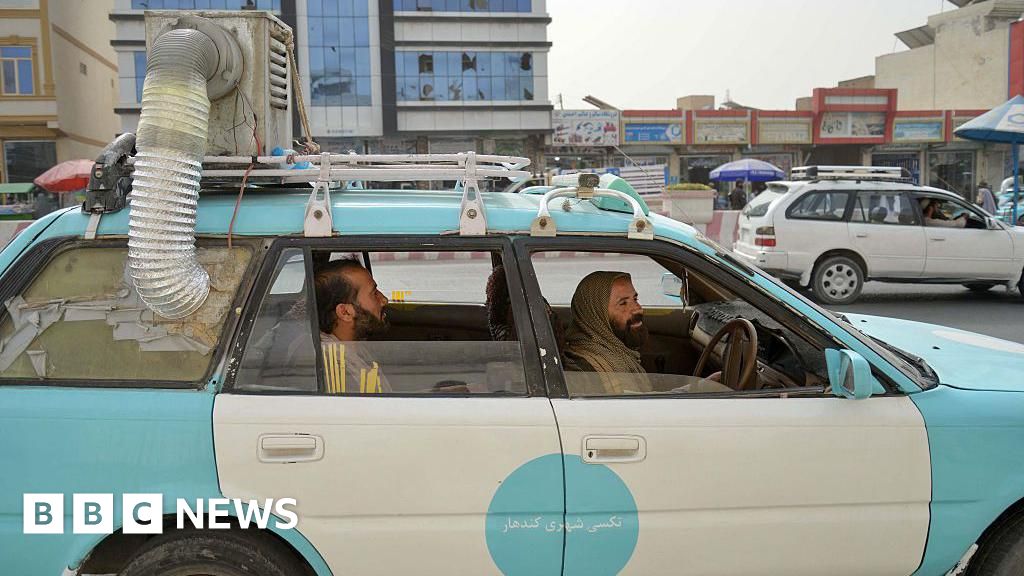[ad_1]
In a sweltering city in Afghanistan, taxis have been spotted with scrubby barrels and exhaust tubes mounted to their roofs.
These are the hand-made air coolers that taxi drivers have cobbled together in their desperate efforts to beat the heat.
Temperatures regularly exceed 40C (104F) in the southern city of Kandahar, but air-conditioning units inside cars often break down, the cabbies lament.
“This works better than [built-in] AC,” one driver, Abdul Bari, told AFP news agency. “ACs only cool the front. This cooler spreads air throughout the car.”
A video from the news agency shows Mr Bari using sticky tape to attach the cooler’s exhaust vent onto the taxi’s window, while an assistant climbs atop the taxi to fix the body of the unit on it.
The only issue with this setup is the need to manually refill water in the unit twice a day, Mr Bari said.
“But it works well for me.”
One of the poorest countries in the world, Afghanistan is also among the most vulnerable to the impact of climate change.
Temperatures in most parts of the country are expected to soar in coming weeks, the government has warned.
Gul Mohammad, another taxi driver in Kandahar, says he turned to these customised coolers a few years ago as the weather started getting “extremely hot”.
“These cars’ AC systems didn’t work, and repairs were too expensive. So I went to a technician, [and] had a custom cooler made,” he told AFP. The 32-year-old spent 3,000 Afghanis ($43; £32) on it.
Passengers have applauded the creative solution.
“When there’s no cooler, it becomes very difficult. I even carry an anti-heat medicine with me,” said 19-year-old Norullah, who said he recently had to get an intravenous drip to treat a heat-related illness.
Afghanistan recorded its warmest-ever spring from April to June this year.
A severe drought has also been spreading nationwide, devastating crops and rural livelihoods, the United Nations Food and Agriculture Organization said last week.
Experts have repeatedly warned that the fallout from climate change would deepen Afghanistan’s humanitarian crisis.
The country has been left out of United Nations climate negotiations since the Taliban seized power in August 2021, after US-led forces left the country.
Source link


















